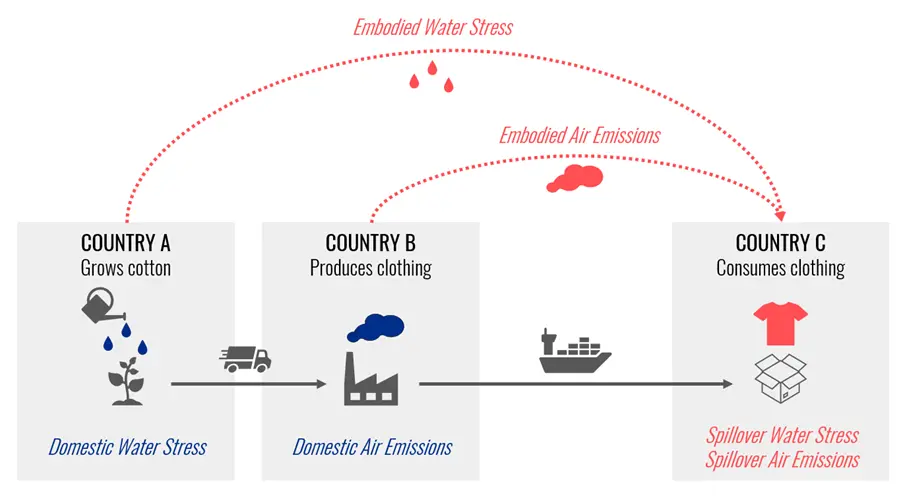We collaborate with various partners - including the Deutsche Gesellschaft für Internationale Zusammenarbeit (GIZ) GmbH on behalf of the German Federal Ministry for Economic Cooperation and Development (BMZ), the Center for Global Commons at the University of Tokyo, the University of Sydney and Yale University among others - to advance research on spillover data and policies in the context of the SDGs and Paris Climate Agreement.
In cooperation with the Center for the Global Commons at the University of Tokyo, we publish annually the Global Commons Stewardship Index which presents the performance 150+ countries on their domestic and spillover impacts on the Global Commons. The International Spillover Index complements each year the global SDG Index.
We also provide detailed analyses, including policy briefs and country features, to strengthen the governance of specific sectors, industries and commodities (textile, food, soy, minerals etc.). We work closely with National Statistical Institutes to strengthen spillover statistics. We also work with the business community to strengthen corporate action.
Our work on international spillovers is used extensively by policymakers, the public and private sector and civil society. It was used and cited for instance in the first European Parliament SDG resolution adopted with a vast majority in June 2022.
